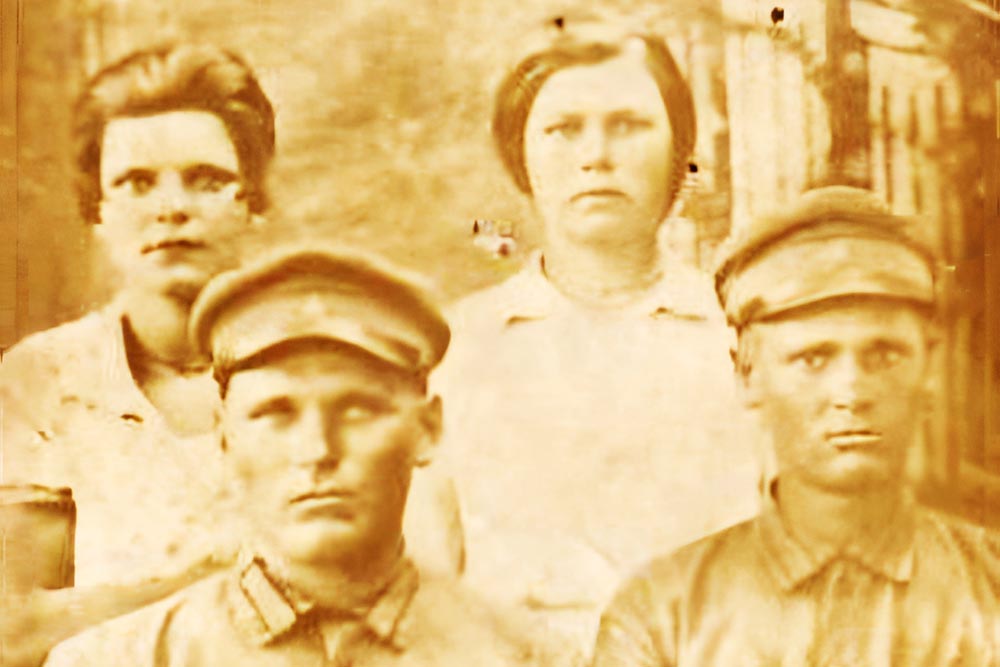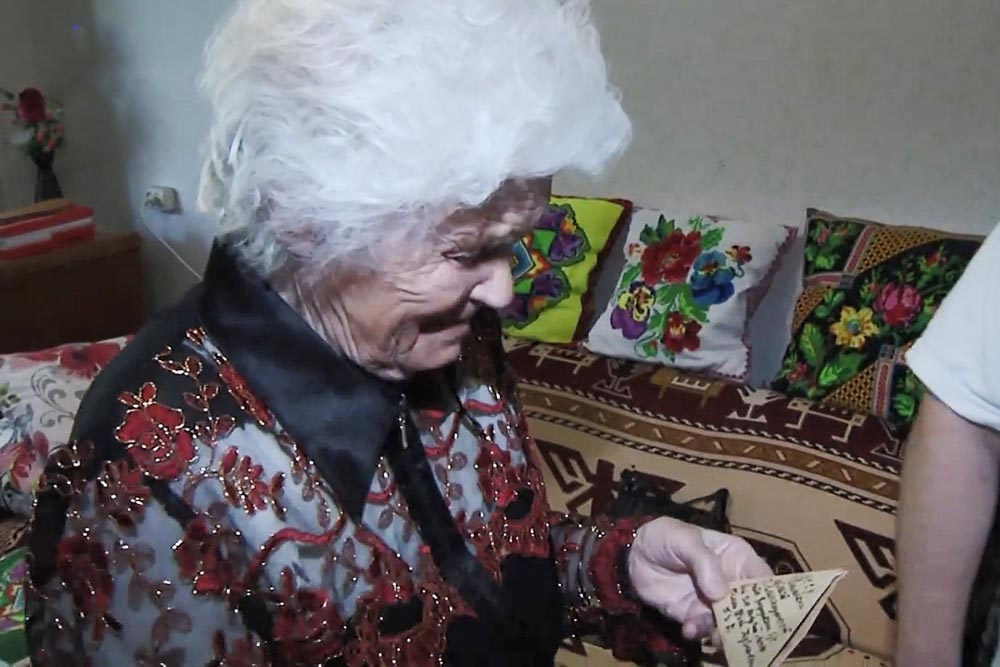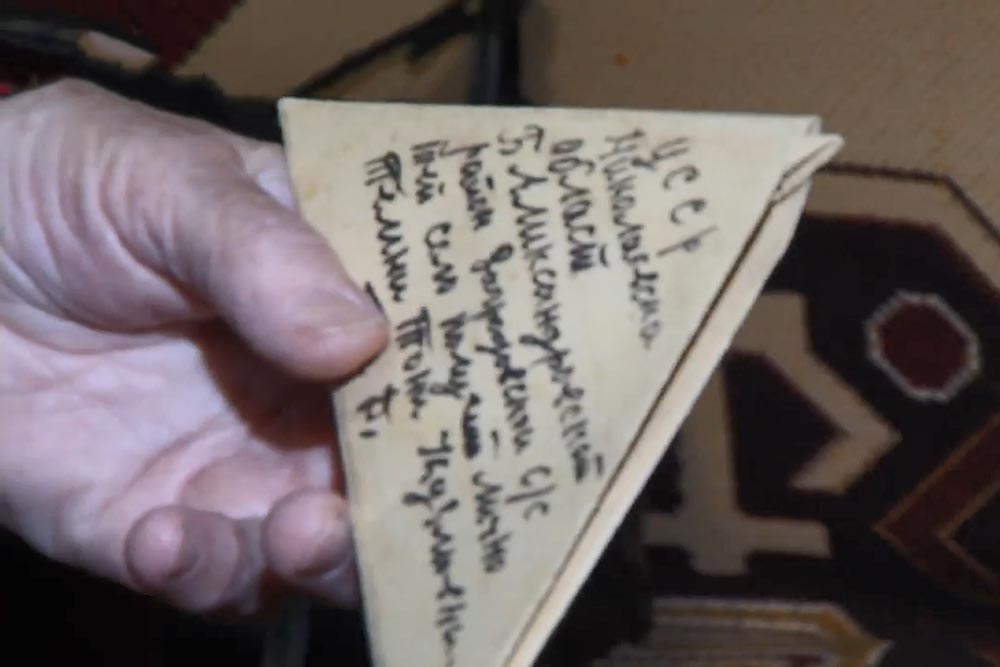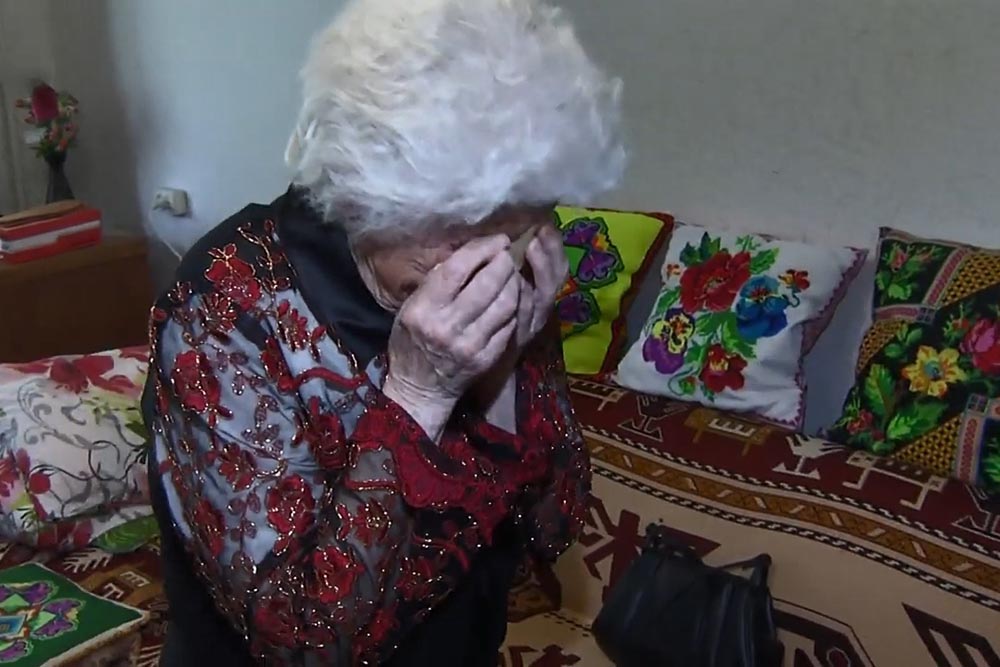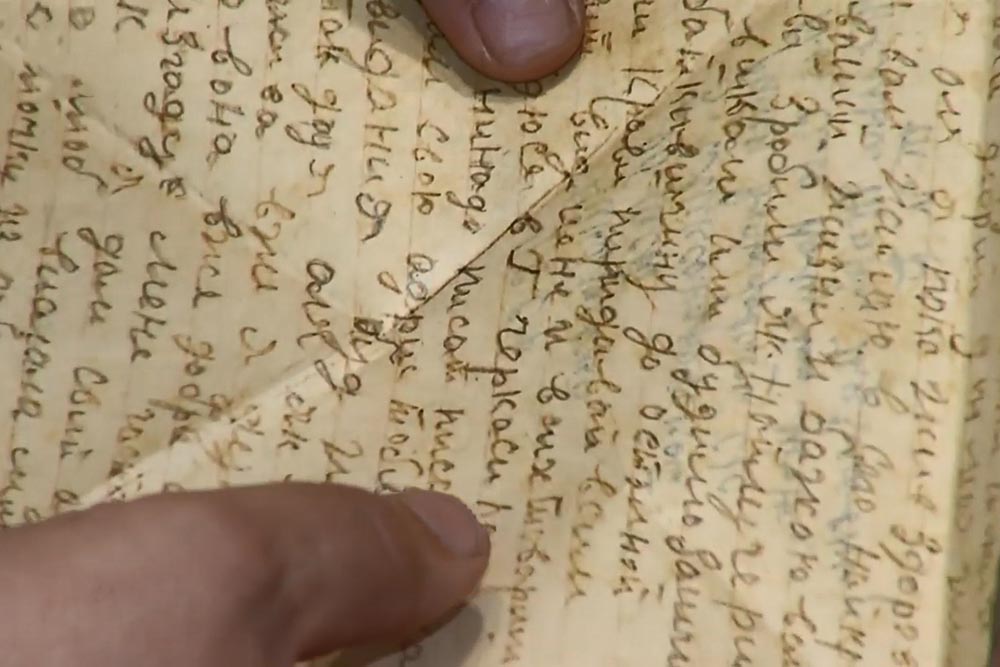After 78 years, Olha Lehosh received a letter from her father. On the eve of the German-Soviet war, the family lived in Dnipropetrovsk (now Dnipro). Ivan Temnyi headed one of the city’s district police departments. With the outbreak of war, he was mobilized. He probably served in the 116th Rifle Division of the 26th Army of the South-Western Front. He participated in defensive battles in the direction of Kyiv.
In the summer of 1941, Ivan wrote two letters to his wife, in which he informed that he was alive and well, was near Cherkasy, and asked her not to be offended by the lack of correspondence, because there was no possibility to send it as the unit of it was far from the city. Most of all, he asked about his daughter Olia, promised to beat the enemy mercilessly.
Ivan Temnyi did not return from the front. The daughter did not remember her father very well: when he went to war, she was three years old. However, one moment was clearly imprinted on the child’s memory: when the horse Buian taken by dad to the frontline returned home without him and how mom cried because of it. The wife and daughter have been looking for him for many years. Olha remembers that only in the 1950s, they found out at the passport office and in a certificate that Ivan Temnyi, born in 1913, lived in Izium, Kharkiv region.
“We thought maybe he was injured and lost his memory or there were some other reasons why dad didn’t come home. That’s why we decided to go with my mother and find out everything...” – said the daughter. However, when they arrived, they saw a completely different man who did not even want to communicate and quickly got them out of his house. After talking with his neighbors, Antonina and Olha found out that “the Temnyi” family came to Izium after the war. Moreover, the women were informed later that after their visit, these people left the house. Therefore, Olha concluded that dad was killed at the front, and someone else used his documents in the post-war period. She donated her family photos to the Museum.
